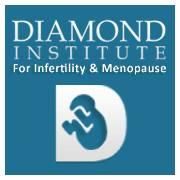What You Should Know About Getting Pregnant After 35

Whether you’ve been struggling with infertility or have recently decided to conceive, you may have concerns about getting pregnant after the age of 35. While there are higher risks, healthy pregnancy is still very possible, and learning about potential complications can help you prepare for and work to prevent them. Below is a brief guide to pregnancy after the age of 35.
What to Know About the Risks
In your 30s, you’re more likely to experience infertility. Your ability to conceive lessens as you age because your eggs age, too. If you haven’t conceived after six months, consider speaking with a fertility clinic for help.
Late pregnancies also have a high chance of complications like miscarriage, Down syndrome, and preeclampsia. Testing can detect issues like gestational diabetes and preeclampsia during pregnancy. Prenatal screening and diagnostic tests are available to screen for genetic disorders and birth defects before and during pregnancy.
There’s also a higher chance of having twins. While that can be desired, multiple babies can increase the risk of complications even in a younger person, so the risk may be more elevated in a geriatric pregnancy.
How to Encourage a Healthy Pregnancy

Before conceiving, consider having a preconception checkup with your medical provider. This will assess your overall health, lifestyle habits, and any medical conditions to determine if you’re healthy enough for pregnancy. It'll identify concerns you can address before conception for a healthier pregnancy, such as obesity, diabetes, or depression.
Once you conceive, you'll maintain your health similar to how you would with a younger pregnancy. Stay active, eat healthily, take prenatal vitamins, and try to reduce your stress levels. Schedule your first prenatal appointment as soon as possible, and go to every appointment that’s recommended afterward to monitor the health of you and your baby.
What Alternatives to Be Aware Of
There are alternatives for you to consider that can lower these risks to you or the baby. If you’re struggling with infertility, then an IVF procedure could help. It involves collecting your eggs and fertilizing them in a lab with the hopes of creating an embryo. If an embryo does develop, you can choose to preserve it for use later or have it implanted right away. You can carry the baby yourself, but if your risk of complications is high, a surrogate can carry it for you.
Another option is egg donation. This is a reliable option for women whose eggs have declined in health or number and aren’t viable for conception. In this situation, eggs from a donor are used to create an embryo through IVF.
No matter your age, Diamond Institute for Infertility & Menopause can help you if you’re experiencing infertility. Serving Millburn, NJ, their doctors have over 40 years’ experience and offer options like the IVF procedure, surrogacy, and egg donations. Their fertility clinic works with most major insurers. Explore their services online, and call (973) 761-5600 for an appointment.
About the Business
Have a question? Ask the experts!
Send your question

